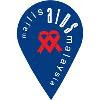As a swine flu virus appears to make its way across the world, so has misinformation and confusion about what the virus is and what sort of threat it poses, partcularly with people living with HIV/AIDS. Below is an extracted article taken from an interiew with Dr Gallant, a professor of Medicine and Epidemiology in the Division of Infectious Diseases at the John Hopkins University of Medicine, USA.
What is Swine Flu?
Swine flu is just a new strain of flu that has not been circulating in the population. As a result, nobody has any immunity to it. It's an influenza virus, just like other influenza viruses, but it's just one that human beings haven't seen before and as a result, our immune systems don't have any memory of it and that makes us a little more vulnerable.
When it comes to people living with HIV then, how does this translate? Are people with HIV more at risk for coming down with swine flu?
Not really. HIV-infected people are not in general at greater risk of influenza or flu than other people. And that's in part because the cellular immune system, the part of the immune system that the CD4 cells comprise, is not really responsible for fighting the flu. As a result, HIV doesn't make you more susceptible. For most people with HIV, the swine flu is pretty much the same as it would be with somebody without HIV.
The only exception to that is that because people with HIV are at higher risk for pneumonia and because flu can increase your risk of pneumonia as a complication of flu, people with low CD4 cells could be at higher risk of complications of flu if they do get the flu and that the most important complication is pneumonia.
So the bottom line is that if you're HIV positive, but you're on HIV medications and doing well and have a reasonably good CD4, then there's probably not much to worry about. But if you're quite immunosuppressed -- if your CD4 is well below 200 -- then there is a slightly increased risk, but certainly not the same level as the risk of some other diseases like tuberculosis or something like that where the CD4 cells are so important.
It sounds like people living with HIV have a greater risk of not gettting swine flu necessarily, but of suffering implications related to it if they have a low CD4 count.
That's right, yes. The risk of getting the flu is the same.
So we are assuming the viral load does not make a different here?
Probably not much. Again, the viral load could contribute a little bit to the risk of complicated flu, if you had a high viral load. Although, I suspect the CD4 count would be a little more important.
Certainly at our clinic we try to vaccinate everybody against the flu, but in general, if you look at most influenza seasons, we really don't see a lot of people getting really sick from the flu. We don't really see a lot of need for hospitalization. And certainly, we don't see a lot of deaths.
So I think that with respect to the swine flu, it shouldn't be much different given what we know so far about this strain now. Although, again, this is a new epidemic and we may get more information as time moves along.
Are there any precautions for HIV-positive people need to take to protect themselves from swine flu?
It's pretty much the same as for anyone else. Normally I would say get a vaccination, but that's not available yet for this strain of flu, so the next best thing you can do is:
- Try to stay away from people who are sick.
- Wash your hands -- because hand contact is a very common way of spreading this.
- If there's flu going on in your community and you can avoid being in crowded places with a lot of people, that probably would help.
But short of that, there's not really much you could do.
Well is there anything else you'd want to tell the HIV-positive people listening to the swine flu craziness that's now overwhelming the news?
For the most part, I've been reassuring my patients that they don't really have to think about this fludifferently than anyone else. And that's in part because most of my patients are on HIV treatment and have undetectable viral loads and have decent CD4 counts. So for them, it really is not a special issue. It's an issue we all have to be concerned about.
I think so far the news from the United States at least is that this is likely to become a bigger epidemic than it is today, but so far it seems to be fairly mild. But given what's gone on in Mexico, I do think we have to be certainly vigilant about it. And I think that we'll just have to see over the next few days how things play out.
Source taken from www.thebody.com







